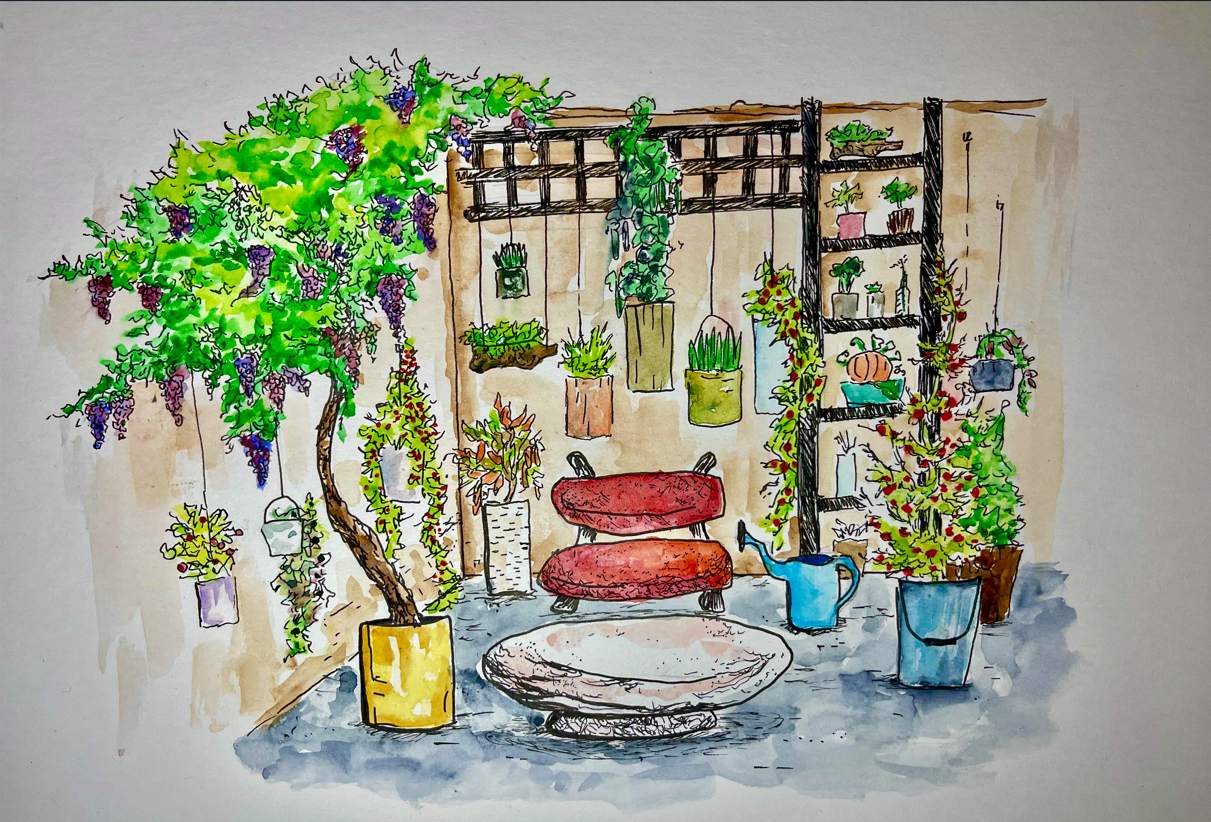These self-service salad corners would transform underutilized spaces into community-growing spots. Vertical hangers crafted from recycled materials like plastic bottles or old furniture planks would hold vessels brimming with nutrient-rich soil. City dwellers could plant, tend, and ultimately harvest their organic produce right in the heart of town.
But the gardens aren't just about cultivating vegetables. They're designed as social hubs where neighbours can gather, swap gardening tips, and reconnect with nature's rhythms. A small attached bench provides a cosy spot to sit, socialize, and savour the literal fruits of your labour. The gardens would host hands-on workshops ranging from "Build the Ultimate Salad" for all ages to biology lessons for schoolkids. Seniors could share agricultural wisdom, while young artists could lend their creativity to designing eye-catching garden structures.
Radovic envisions the salad oases benefiting many city residents, from the unemployed and elderly to those battling depression or limited access to fresh foods. Tending the plants could provide an uplifting sense of purpose and connection. While just a concept for now, the Hanging Salad Gardens showcase creative ways to squeeze green spaces into dense urban areas. By weaving pockets of nature into the concrete landscape, our cities could become healthier, more community-oriented places to call home. Why settle for another drab park bench when you could have your edible oasis instead?
--
This story is part of the Special Feature on the New Bauhaus Awards 2024.
Find out more at the New Bauhaus website:
Hanging Salad Gardens: Vertical salad stands with a bench and tools where citizens can grow vegetables, sit and socialize








